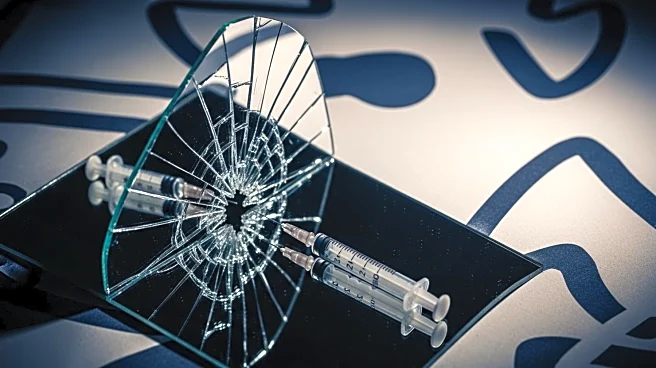What's Happening?
A French influencer, Ilan M., known online as 'Amine Mojito,' has been sentenced to six months in jail for a viral prank involving fake syringe attacks. The video, shared on TikTok, showed him pretending to inject people with an empty syringe, causing widespread panic. This incident occurred during a period of heightened concern in France over reports of needle attacks at public events. Despite 145 reports of needle spiking during a June music festival, few cases were substantiated. The Paris Criminal Court sentenced Mojito to 12 months in prison, with six months suspended, for 'violence with a weapon that did not result in incapacity for work.' He was also fined and banned from owning or carrying a weapon for three years. Mojito expressed regret, stating he did not anticipate the harm his actions could cause.
Why It's Important?
The sentencing of Ilan M. highlights the serious consequences of social media pranks that incite public fear and disorder. This case underscores the potential for viral content to influence real-world behavior and the legal implications of such actions. The incident has sparked debate in France about the balance between public safety and individual rights, with many citizens expressing dissatisfaction with the perceived leniency of the sentence. The case serves as a cautionary tale for influencers and content creators about the responsibility that comes with their platform and the impact of their actions on society.
What's Next?
Following the sentencing, there may be increased scrutiny on social media platforms regarding the content shared by influencers. Legal experts and policymakers might consider implementing stricter regulations to prevent similar incidents. The public reaction could lead to discussions about the adequacy of current laws in addressing digital misconduct and the need for more severe penalties. Additionally, social media companies might face pressure to enhance their monitoring systems to prevent the spread of harmful content.
Beyond the Headlines
This incident raises ethical questions about the role of influencers in shaping public perception and the moral responsibility they hold. It also highlights the cultural impact of social media on youth behavior and the potential for imitation of dangerous acts. The case may prompt a broader conversation about the influence of digital media on societal norms and the importance of promoting responsible content creation.










